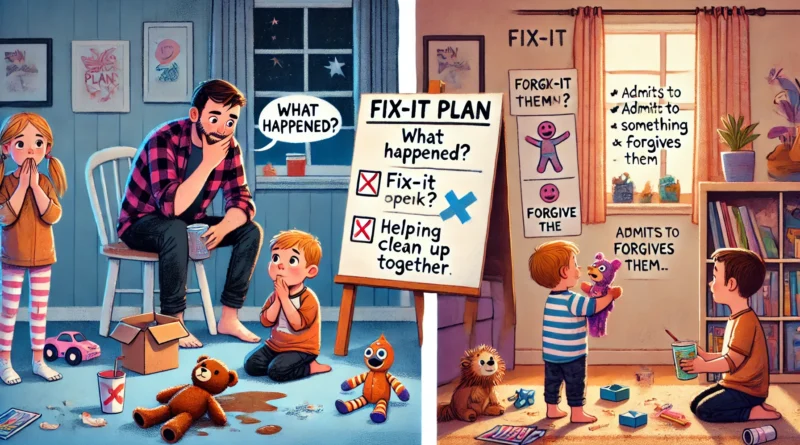How to Teach Young Children About Being Honest and Taking Responsibility
Honesty and responsibility are powerful values to start teaching early. When children learn to tell the truth and take ownership of their actions, they build trust, develop integrity, and grow into thoughtful, dependable individuals. Teaching these concepts doesn’t mean perfection—it means creating a safe space where truth is encouraged and mistakes become opportunities to grow.
Why Honesty and Responsibility Matter
- Builds trust and respect in relationships
- Fosters emotional safety and self-awareness
- Encourages accountability and growth
- Teaches cause and effect
- Supports long-term character development
Option 1: Use Gentle, Honest Conversations After Mistakes
Activity Idea:
If your child spills something or breaks a rule, stay calm and say:
- “What happened?”
- “It’s okay to make mistakes. Let’s tell the truth and fix it together.”
Avoid punishment for telling the truth—focus on reflection and repair.
What Kids Learn:
- That honesty is safe and supported
- Responsibility includes action, not shame
- How to fix what’s been broken (physically or emotionally)
Tool Suggestion:
Create a “Fix-It Plan” worksheet: What happened? How can I help fix it? What will I try next time?
Option 2: Role-Play and Storytelling Around Honesty
Activity Idea:
Use stuffed animals or puppets to act out a situation:
- “Bear accidentally broke a toy. Should Bear hide it or tell the truth?”
Talk through both options and ask: “What would you do?”
Read books with honest characters or those who learn lessons after telling fibs.
What Kids Learn:
- Honesty is a brave, kind choice
- Everyone makes mistakes
- Telling the truth helps things get better
Book Suggestion:
Lying Up a Storm by Julia Cook — a fun, kid-friendly story about the value of truth.
Other Ways to Reinforce the Message
- Praise honest behavior immediately: “Thank you for telling me the truth!”
- Use your own mistakes as teaching moments: “I forgot something important today. I’m going to make it right.”
- Celebrate responsibility: “You helped clean up without being asked—that’s very responsible!”
- Avoid harsh reactions that make children fearful of being honest
- Create a culture of truth in your home or classroom where honesty is respected and gently guided
Final Thoughts
Honesty and responsibility aren’t traits children are born with—they’re skills they learn with love, guidance, and real-life practice. When children feel safe to tell the truth and are supported when they take responsibility, they develop confidence and character that lasts a lifetime. Every honest moment becomes a building block for trust, integrity, and emotional strength.
